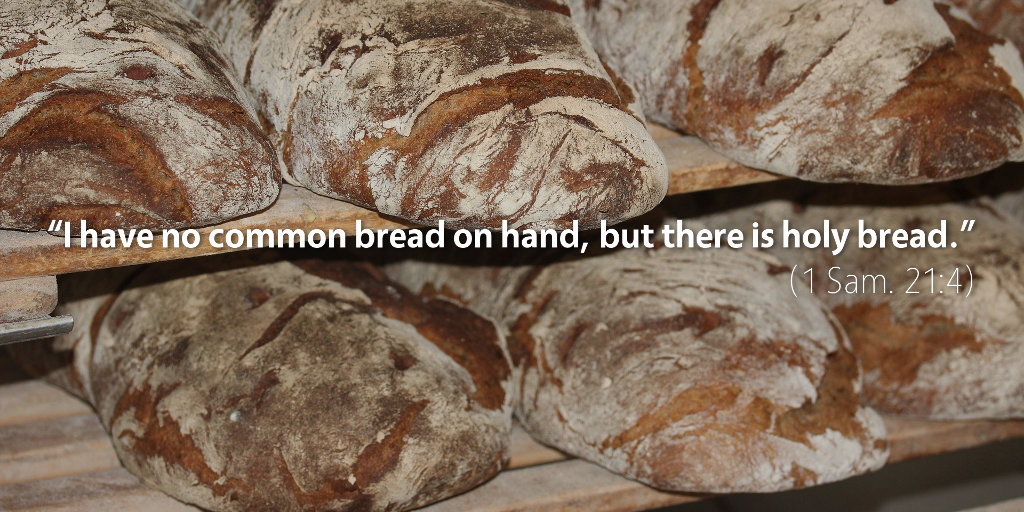Bible Readings for August 29
1 Samuel 21–22 | 1 Corinthians 3 | Ezekiel 1 | Psalm 37
In 1 Samuel 21–22, David is at the center of three major ethical dilemmas. First, David lies to the priests at Nob (1 Sam. 21:2), and second, David lies to Achish the king of Gath by pretending to be insane (1 Sam. 21:13). Third, David eats the bread of the Presence, which is forbidden for non-priests (1 Sam. 21:4–6). As it happens, Jesus himself specifically addresses the third dilemma, and by studying Jesus’ words, we find help for evaluating the first and second dilemmas.
Intriguingly, Jesus commends David for eating the bread of the Presence, citing this story to defend his own disciples when they were hungry enough to pluck heads of grain on the Sabbath (Matt. 12:1–8; Mark 2:23–28; Luke 6:1–5). Jesus insists that the laws protecting the holy bread have a lower priority than the laws protecting human beings. So, if someone is hungry, it is right to give that person bread, even if the only bread available is holy bread.
This insight helps us to understand David’s lies better, since both of David’s lies protect the people with him from Saul’s murderous wrath. The ninth commandment is not “You shall not lie” but rather “You shall not bear false witness against your neighbor” (Ex. 20:16). Accordingly, we see Israel’s midwives in Egypt commended by God himself for lying to protect the male Hebrew children (Ex. 1:18–21), and we see Rahab saved by lying to protect the Israelite spies (Josh. 2:2–5, 14). David himself here does not repent from lying to the priests of Nob, but he does lament that his presence had caused their deaths (1 Sam. 22:22).
The principle seems to be that God’s people have an obligation, first and foremost, to protect the lives of innocent people. So, for example, we should applaud the people who protected Jews in Nazi Germany, even though they had to lie to do so. At the same time, we should never feel justified in telling white lies for convenience, or in telling lies to protect ourselves from trouble—and especially from trouble that arises from our own sin.
Ultimately, this means that our lives should be characterized by love for others—not by a concern for self-preservation or comfort—and our words ought to reflect that love. That is, we ought to protect our neighbors with our words, at a minimum by refraining from bearing false witness against them—but more so by self-sacrificial compassion. Remember that even when Jesus could have used his words to protect himself from the cross, he refused to do so in order to lay down his life for us. There are times to protect and times to suffer, and we need God’s word and God’s Spirit to give us the wisdom to know the difference.
Podcast: Play in new window | Download (5.0MB) | Embed
Subscribe: Apple Podcasts | RSS | More

Scripture quotations are from The Holy Bible, English Standard Version copyright © 2001 by Crossway Bibles, a division of Good News Publishers. Used by permission. All rights reserved.


